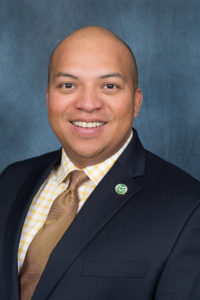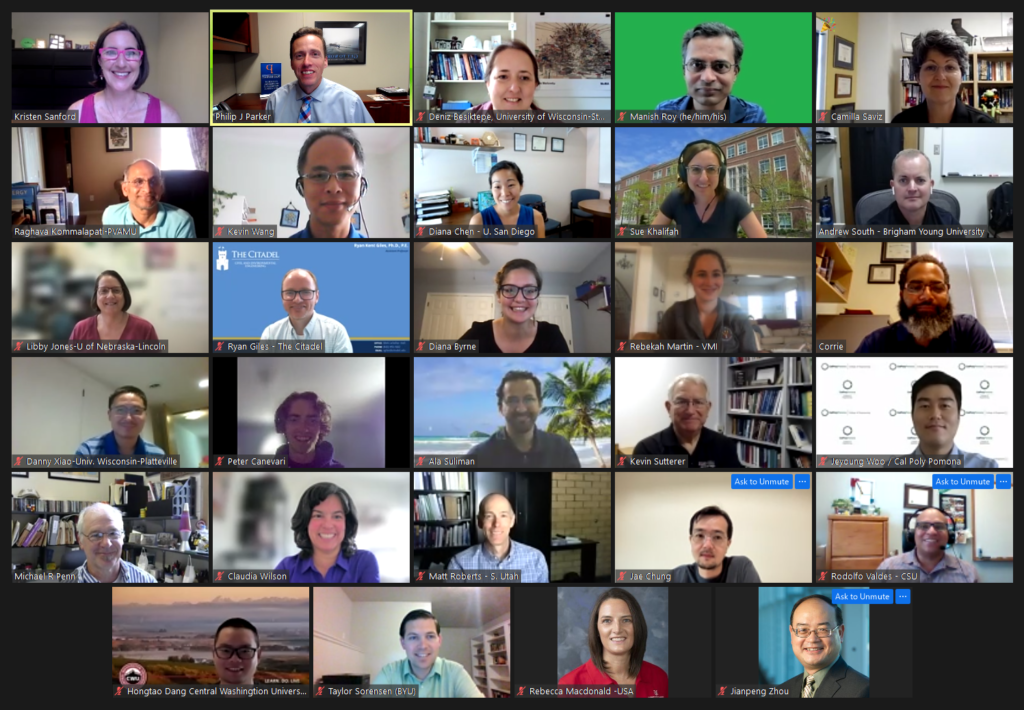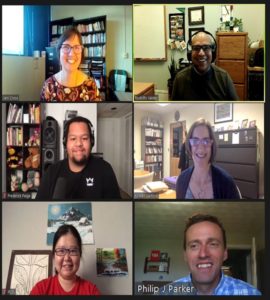Adapted from a story by Alison Parkins, University of Wisconsin-Plattville

A researcher from Colorado State University is part of a new grant sponsored by the National Science Foundation aiming to transform the approach to diversity, equity, and inclusion in civil and environmental engineering education. Rodolfo Valdes–Vasquez, associate professor in the Department of Construction Management, is heading up the project for CSU, which is part of a consortium of four universities, including the University of Wisconsin-Platteville, Virginia Tech, Lafayette College, and CSU. The four institutions received a two-year building capacity NSF grant for approximately $300,000.
The grant will support the ongoing work of the Center for Infrastructure Transformation and Education (CIT-E) in diversifying infrastructure curriculum. Created nearly a decade ago and based on a previous NSF grant, CIT-E (pronounced “city”) is a group of faculty members from across multiple institutions nationwide who share an interest and passion for infrastructure education. Over the past several years, their work has included developing an introductory infrastructure course. As a result, more than 40 teaching modules have been co-created and adopted by dozens of universities across the country. In addition, the members of CIT-E shared best practices and resources among them; and provided mentorship to younger members adopting or adapting the materials.
Making the most of the pandemic
“I was introduced to CIT-E last summer,” said Valdes-Vasquez. “I was trying to be engaged in the middle of the pandemic with new collaborators since my sabbatical was derailed. So, I attended their online summer workshops focusing on how we, as faculty members, could help students understand how the pandemic and systemic racism affect and are affected by infrastructure. I was thrilled to meet new colleagues and committed to co-create a teaching module for their Canvas repository.”

He joined three other faculty members and developed a Teaching Module titled “Impacts of COVID-19 on Transportation Systems and Stakeholders.” They also took this opportunity to work on a pilot study implementing the module, and their work was published as part of the 2021 ASEE Conference Proceedings. Late last year, Philip Parker, interim dean of the College of Engineering Mathematics and Science at the University of Wisconsin-Platteville and principal investigator on the NSF grant, invited him to be part of a new effort to assess and enhance the ongoing work of CIT-E.
Integrating DEI into engineering curricula
The change CIT-E hopes to address ultimately is the destructive relationship between systemic racism and infrastructure. Examples of this, Parker said, can be seen in several ways – from communities of underrepresented minorities being displaced when new infrastructure is built or being cut off from opportunities because of infrastructure design to the increased likelihood of poor health due to proximity to environmental hazards.
This grant will expand the capacity of CIT-E and support the efforts of faculty integrating diversity, equity and inclusion into civil and environmental engineering curricula. Leveraging CIT-E as a thriving community of practice (CoP), the project frames the work through the relationship between systemic racism and infrastructure.
The project will develop:
- CIT-E communal understanding of how DEI and infrastructure are related;
- what the interaction among members reveals about DEI;
- how members of the CoP can educate one another by addressing DEI issues in education, research, and professional practice; and
- how the CoP can inspire real and lasting change.
The project will also involve gathering and studying successful case studies from other institutions and evaluating CIT-E’s own resources and needs to identify and address gaps in their ability to do this work.
Valdes-Vasquez will be responsible for applying a research technique called Group Concept Mapping. The participants will identify, cluster, and prioritize ways of integrating DEI into curricula. The outcomes of this part of the study will help the four institutions develop a multi-institutional proposal to transform the civil and environmental engineering education community into a community that can sustain growth in DEI integration.
Research collaborations

“I am also looking forward to collaborating with the CSU’s Institute for Research in the Social Sciences (IRISS) in this project,” said Valdes-Vasquez. “The IRISS team will support the project by assessing the dynamics of the geographically dispersed research team and providing Team Science tools aiming to accelerate the team’s integration. In addition, the research team at CSU will include Cassandra Puletapuai, a new doctoral student, who is part of the Ph.D. in Education, Equity, and Transformation with a focus in Construction Management.”
Valdes-Vasquez is also the graduate program coordinator for the Department of Construction Management and currently holds joint appointments with the Department of Civil and Environmental Engineering, the Department of Systems Engineering, and the School of Global Environmental Sustainability. He was the inaugural DEI committee chair in the department and has numerous publications related to sustainability. His Social Sustainability Framework is a well-cited American Society of Civil Engineers publication.
“My previous research work and this grant align with my commitment to educating the next generation of professionals, researchers, and educators,” he said.
The NSF’s Improving Undergraduate STEM Education funds this project: Education and Human Resources Program (Grant award numbers: 2121326, 2121376, 2121429, and 2121436).
The Department of Construction Management is part of CSU’s College of Health and Human Sciences.